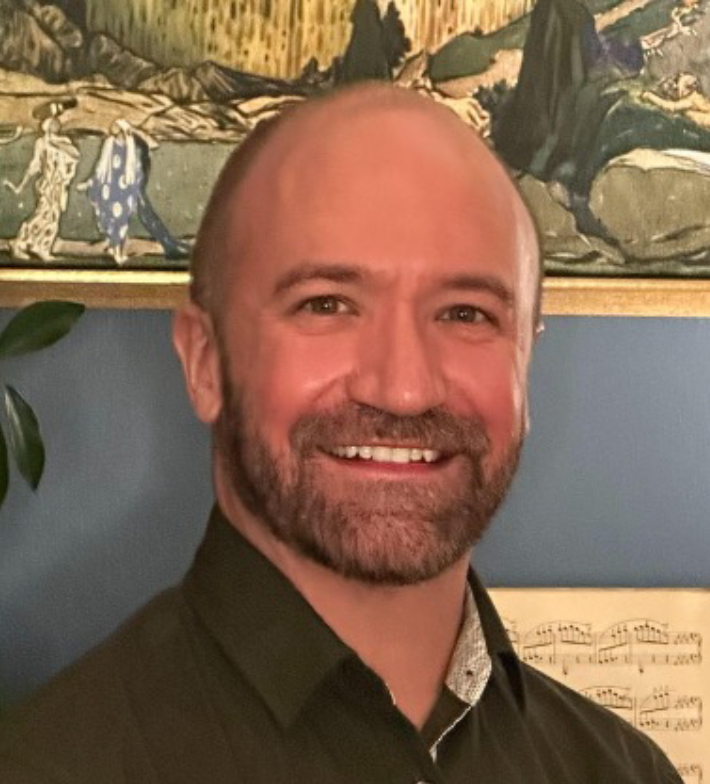
Meet Gary Nelson
Gary has been working in finance for the University in various departments for the past six years and prior to that, the Minnesota Orchestral Association for fourteen years. Gary has experience in fund accounting, auditing, management, training, and has developed a well-rounded understanding of the complexity of the University's financial environment. Moreover, Gary appreciates and understands how vital the people are in what we do at the University and how we will all play a vital role in providing exceptional, accurate, and timely financial services to the University statewide.
Gary resides in the Twin Cities with his partner and enjoys spending as much time as possible with his family and friends, often playing board games. Gary dedicates time every day to piano practice and music, he has taken up oil painting, and enjoys international travel and all of the food involved. He likes to stay active with exercise and meditation, and you’ll often hear him complaining about doing too much yard work but secretly loving it.
Q & A with Gary
To learn more about his leadership style and get to know Gary a bit more, we talked with him about the new role in the Fin Ops Center.
Q: What do you believe will be the biggest resource that the Fin Ops Center will provide campuses, colleges, and units?
A: Delivering consistently accurate, timely, and personable financial services to the University community. The University is inherently complex and the FinOps Center will be the place where policy meets practice and therefore a functional resource for the University.
Q: How will you lead your staff, stay connected with the Fin Ops Center, and work closely with the units you will be supporting across the State?
A: There is a lot to consider here since we are a team peppered across the state and entering new territory. We have the practical tools and the experience of staying connected remotely thanks in part to the pandemic, but in reality, staying connected and engaged requires a lot of attention. While I have some good ideas and tools at the ready, my general approach will be guided by working with the team itself and understanding what is important to them and collectively sharing ways we can all stay connected and engaged.
Q: What’s your leadership style?
A: First and foremost, I lead by example. It is a simple notion, but a notion that I have respected in the leaders I have worked with throughout my career and something I take to heart and employ myself. I approach leadership with flexibility and rely on the experiences and knowledge I’ve gained over time and I understand that different scenarios and different people benefit from different approaches.
Overall, my style tends to be practical and collaborative, and I like to be clear with my communication and my expectations–while also making sure I understand others’ expectations of me. Additionally, nothing pleases me more than seeing someone learn, develop, and feel good about their accomplishments so I like to find ways to help people learn and develop.
Q: How did your career lead you where you are today?
A: My path has been mostly non linear–I went from music school to accounting with many adventures along the way. While I used to envy the people that knew exactly what they wanted to do, through my professional and academic exploration, I’ve learned where my aptitudes and interests are and where I can be fruitful. On the technical side, I thoroughly enjoy accounting and the logic involved, but overall, I thrive at working with and developing people.
Q: What are some of the challenges ahead that you will be working through as you begin working in the Fin Ops Center?
A: At the forefront of my mind is how we will meet the immediate needs of getting this massive machine up and running with all of the functional hurdles and challenges. Staying connected is going to be crucial too. Not only connected as a team, but moreover how we stay connected to the University’s mission, departments, colleges, units, and the U community that rely on our services. It is all too easy to detach from those important connections once you get buried in your process, but those connections and symbiotic relationships will be what guide our ability to provide and maintain quality service.
Q: What are some of the activities you like to do while not working?
A: It’s important to me to always be actively learning, exploring, and creating. I probably have too many interests and pursuits, but an interesting one is that I have always been a big reader of (or listening to audiobooks on) physics and cosmology. It’s a field where as humanity expands its knowledge and understanding of it, the amount we don’t know and understand grows even bigger.
